
News • Long-term anxiety
Cardiac arrest 'haunts' women more often than men
More than 40% of women report anxiety four months after a cardiac arrest compared with 23% of men, according to research presented at ESC Acute CardioVascular Care 2023.

More than 40% of women report anxiety four months after a cardiac arrest compared with 23% of men, according to research presented at ESC Acute CardioVascular Care 2023.

A recent survey of more than 8,000 patients found that users overwhelmingly supported receiving their test results immediately, even if their provider had not yet reviewed them.

Do you feel like time sometimes flies, or can drag on when you're bored? A recent study by academics at Royal Holloway shows how our heartbeats can lead to distortions in our perception of time.

A new study by psychologists at the University of Vienna shows that there is no scientific evidence supporting the alleged positive effect of Mozart's Sonata KV448 on epilepsy.

England’s National Child Measurement Programme (NCMP) is designed to tackle childhood obesity. However, a new study suggests it might give rise to mental health problems in children.

Nurses who worked in critical care during the Covid pandemic are at an increased risk of mental health problems, according to a new study.
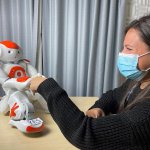
According to a new study, robots can be better at detecting mental wellbeing issues in children than parent-reported or self-reported testing.

The inclusion of a narrative about Alzheimer’s disease in primetime TV drama “This Is Us” was found to help reduce stigma around dementia and motivate family discussions about plans for aging.

Danish smokers bought less tobacco and more quit smoking during the Covid pandemic, new research finds. This comes as a surprise given that mental health and exercise habits waned during the lockdown.

The language used by doctors when diagnosing female patients with polycystic ovary syndrome (PCOS) can negatively impact their wellbeing and how they view their condition, new research finds.
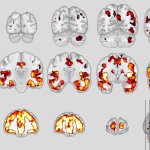
Researchers for the first time compared schizophrenia and frontotemporal dementia, disorders that are both located in the frontal and temporal lobe regions of the brain.

More than 225,000 tweets with the hashtags #scamdemic and #plandemic led to an “infodemic” of misinformation and disinformation on Twitter during the first year of the pandemic, a new study finds.

It is often believed that a close relationship between owners and their dogs can bring many mental health benefits to owners, but findings from a new study paint a more complicated picture.

Staff across all levels of UK health and social care reported feeling betrayed, morally violated and being treated unjustly and unfairly at work during the Covid-19 pandemic.
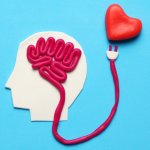
Changes in areas of the brain associated with emotion have been identified in people with Takotsubo syndrome, sometimes known as broken heart syndrome, according to new research.
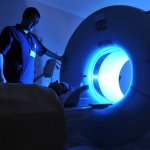
Patients with neurological conditions such as dementia or autism can prove especially challenging for radiographers. A session at the ECR Overture in March gave insights to a patient-focused approach.

Around 33% of GPs are likely to quit direct patient care within five years, according to a UK survey. The high percentage of young physicians is especially alarming.

E-mental health services could provide a response to these challenges and offer effective ways for prevention, diagnosis, treatment, and aftercare.

A large-scale qualitative study looks into the difficulties frontline doctors faced across two waves of the Covid-19 pandemic in the UK and Ireland since early 2020.

French researchers have found that addressing concerns related to the Covid-19 vaccination via a chatbot interface might be capable of swaying the vaccine-hesitant. Vaccine hesitancy is one of the major challenges in containing the Covid-19 pandemic. Previous studies have revealed that mass communication—through short messages relayed by television or radio—is not a very effective means of…

Colourful, 3D rendered scientific images are fascinating - but can they deceive viewers? New research from Spain suggests this might be the case. According to the study by the Instituto de Radio Televisión Española and the Universitat Autònoma de Barcelona conducted during the Covid-19 lockdown, black and white images of SARS-CoV-2 make the virus seem more infectious. The results, published on…
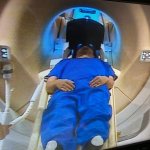
Claustrophobia or anxiety can overwhelm small children and people with cognitive difficulties, especially in a confining and noisy MRI scanner tube. Their restless reactions can then render scan images useless. To help such patients to relax during scanning, a team from King’s College London (KCL) has designed an immersive environment with a special virtual reality (VR) headset for use with MRI…

A pandemic is not a game. Yet, human response in dealing with Covid-19 resembles patterns known from games: people hoard resources, compare leaderboards and graphs, play certain social roles, establish a good-versus-evil narrative, and align themselves with prominent hero figures. The reasoning behind this is simple.
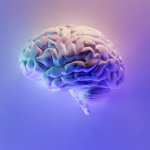
Two clusters of brain cells compete to promote either the persistence or disappearance of traumatic memories, according to a new study conducted in mice. The findings could provide important insights into human conditions such as post-traumatic stress disorder (PTSD), anxiety disorders, and associated problems such as alcohol use disorder (AUD) that can arise from the persistence of traumatic…

Some clinicians are concerned that post-traumatic stress disorder (PTSD) diagnosis has risen throughout Western society since the late 1980s. Is this correct? And if so, has the true incidence of PTSD really spiralled out of control, or has it simply become overdiagnosed? Experts debate the issue in The BMJ this week. PTSD is a serious and uncommon condition resulting from severe trauma, but it…